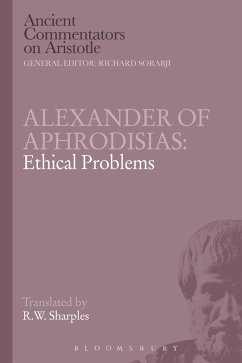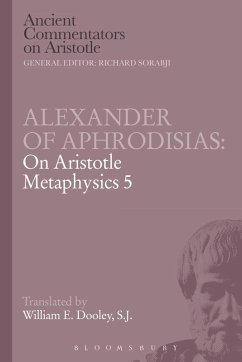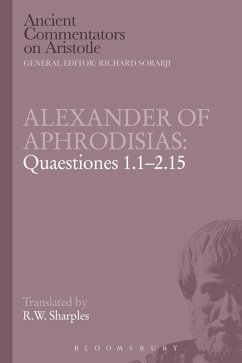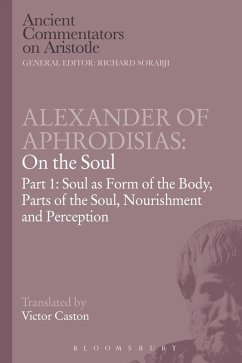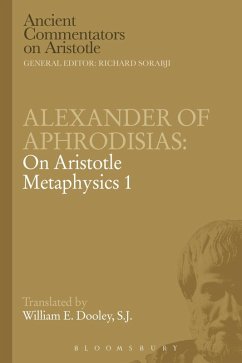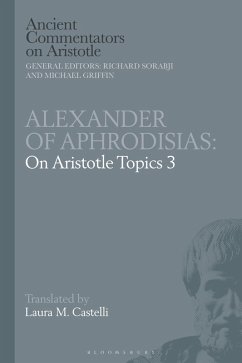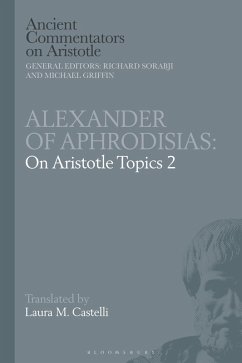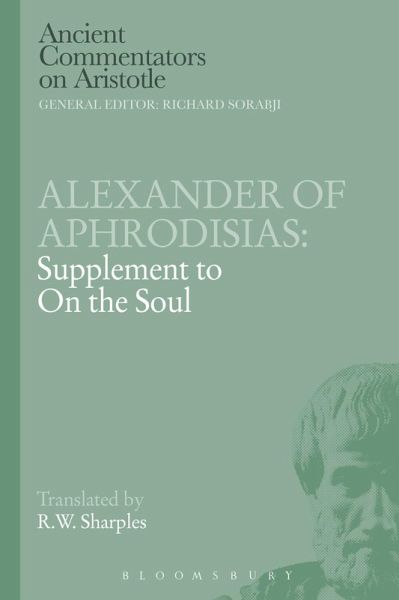
Alexander of Aphrodisias: Supplement to On the Soul (eBook, PDF)
Versandkostenfrei!
Sofort per Download lieferbar
31,95 €
inkl. MwSt.
Weitere Ausgaben:

PAYBACK Punkte
16 °P sammeln!
The Supplement transmitted as the second book of On the Soul by Alexander of Aphrodisias (fl. c. 200 AD) is a collection of short texts on a wide range of topics from psychology, including the general hylomorphic account of soul and its faculties, and the theory of vision; questions in ethics (natural instincts, the unity of the virtues, the naturalness of justice and the insufficiency of virtue for happiness); and issues relating to responsibility, chance and fate. One of the texts in the collection, On Intellect, had a major influence on medieval Arabic and Western thought, greater than that...
The Supplement transmitted as the second book of On the Soul by Alexander of Aphrodisias (fl. c. 200 AD) is a collection of short texts on a wide range of topics from psychology, including the general hylomorphic account of soul and its faculties, and the theory of vision; questions in ethics (natural instincts, the unity of the virtues, the naturalness of justice and the insufficiency of virtue for happiness); and issues relating to responsibility, chance and fate. One of the texts in the collection, On Intellect, had a major influence on medieval Arabic and Western thought, greater than that of Alexander's On the Soul itself. The treatises may all be by Alexander himself; certainly the majority of them are closely connected with his other works. Many of them, however, consist of collections of arguments on particular issues, collections which probably incorporate material from earlier in the history of the Peripatetic school. This translation is from a new edition of the Greek text based on a collation of all known manuscripts and comparison with medieval Arabic and Latin translations.




